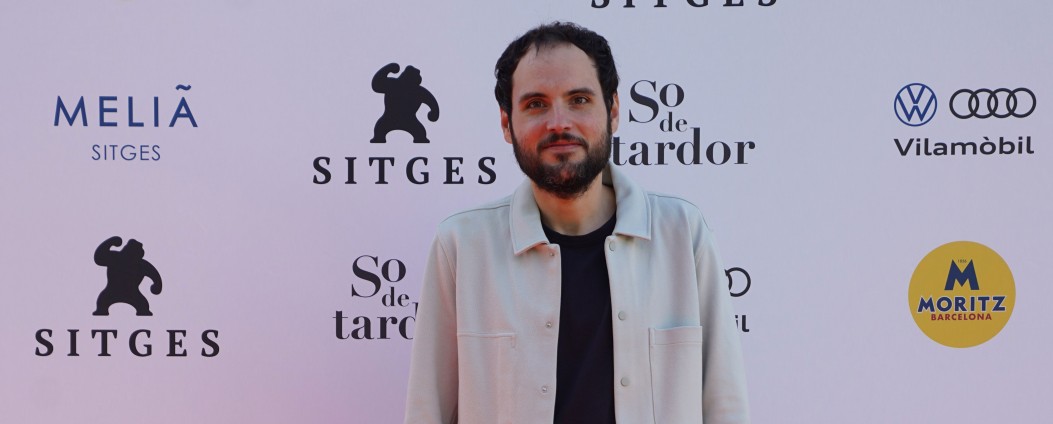
Interview with Alberto Evangelio
26 Jul 2022
Reading 3 min.
By Andreu Marves
Visitor is Alberto Evangelio's debut feature, a story about parallel dimensions full of twists and intrigue, characterized by its practical effects and naturalistic setting
You're just about to present your debut feature film at the Sitges Film Festival. How do you feel?
I'm happy to be able to be part of it. It's always been a dream of mine: I've been competing for years with my short films in other sections, but this is my debut feature film, and in the official selection. And I'm also nervous because it's the film's first contact with the audience. I've been working on it for such a long time, and I can't wait for people to see it, for some to like it, others not... [laughs]
Tell us about the idea that gave birth to the project.
On the one hand, it comes from my passion for fantastic genre and science fiction, and the idea that there may be something out there that we don't know about. On the other, I'm very interested in stories where the characters question the paths they've chosen in their lives. It's something that happens to all of us, and I think genre is ideal for exploring these types of concerns. Visitor emerges from the crossroads between these two ideas. It's an ambitious story about a meteorite that, when it collides, splits time in two, but I'm happy that, in making the film, we brought these themes down to earth and achieved the result we did.
One of the most interesting elements of the film is its mixture of genres: science fiction, thriller, drama... was this combination intentional or did it emerge organically when the script was written?
It was a conscious narrative decision. We didn't want to show all of our cards at the beginning of the film. I like to place viewers in a dichotomy so that they can gradually formulate different hypotheses about what's happening in the film. That way, when we finally figure it out, it's more surprising.
How was working with Iria del Río, the lead actress? Her role is very particular…
Preparing the character with Iria was one of the main elements in constructing the film. I usually open up a lot when it comes to allowing actors to add their own elements to the role, and it was the same with her. We held a lot of meetings: not so much rehearsals, but rather different talks about what her character would be like. She was facing a major challenge, which was to play more than one role throughout the film, the same character whose life splits in two at a specific moment, which required subtle gestures to differentiate these two roles. It was also very important for me to work with naturalism, so that viewers could identify with the characters as if they were flesh and blood.
Some of the conflicts that the lead character faces are especially important if we take into account the fact that she's a woman. Did you want to introduce a gender reading in the film, or was it natural?
It all came from placing myself in the perspective of a woman whose life has taken a course that isn't the one she expected, who was unable to develop her vocation, and whose husband hides things from her and gaslights her. In other words, simply because she is a woman, she has to face more adverse circumstances. It isn't the film's central theme, but it is dealt with tangentially, and was a deliberate decision when it came to developing the character.
Visitor is one of several fantastic Spanish films we have at the Festival this year. Do you think there's a Spanish fantastic brand?
Yes, of course. And hopefully it will be worked on and supported more, because I think it is one of the genres that can be exported the best and developed the most by the film industry. Besides, it helps to put our local concerns into a more global context, which is always nice. It was very important to me that viewers could identify with the world I was presenting, so I tried to start out from what I know best, which is our country. At the same time, I wanted the characters' issues and motivations to be universal.
Finally, which directors and films are the ones that have brought you to where you are today, presenting a fantastic film at the Sitges Film Festival?
I love classic cinema, but also directors from the seventies and eighties like Roman Polanski, Steven Spielberg, David Cronenberg or David Lynch. In recent years, there have been films that I've seen at the Festival itself, like The Babadook or Possessor that have really interested me.
Previous content
Interview with Álex de la IglesiaNext content
Interview with Kier-La Janisse